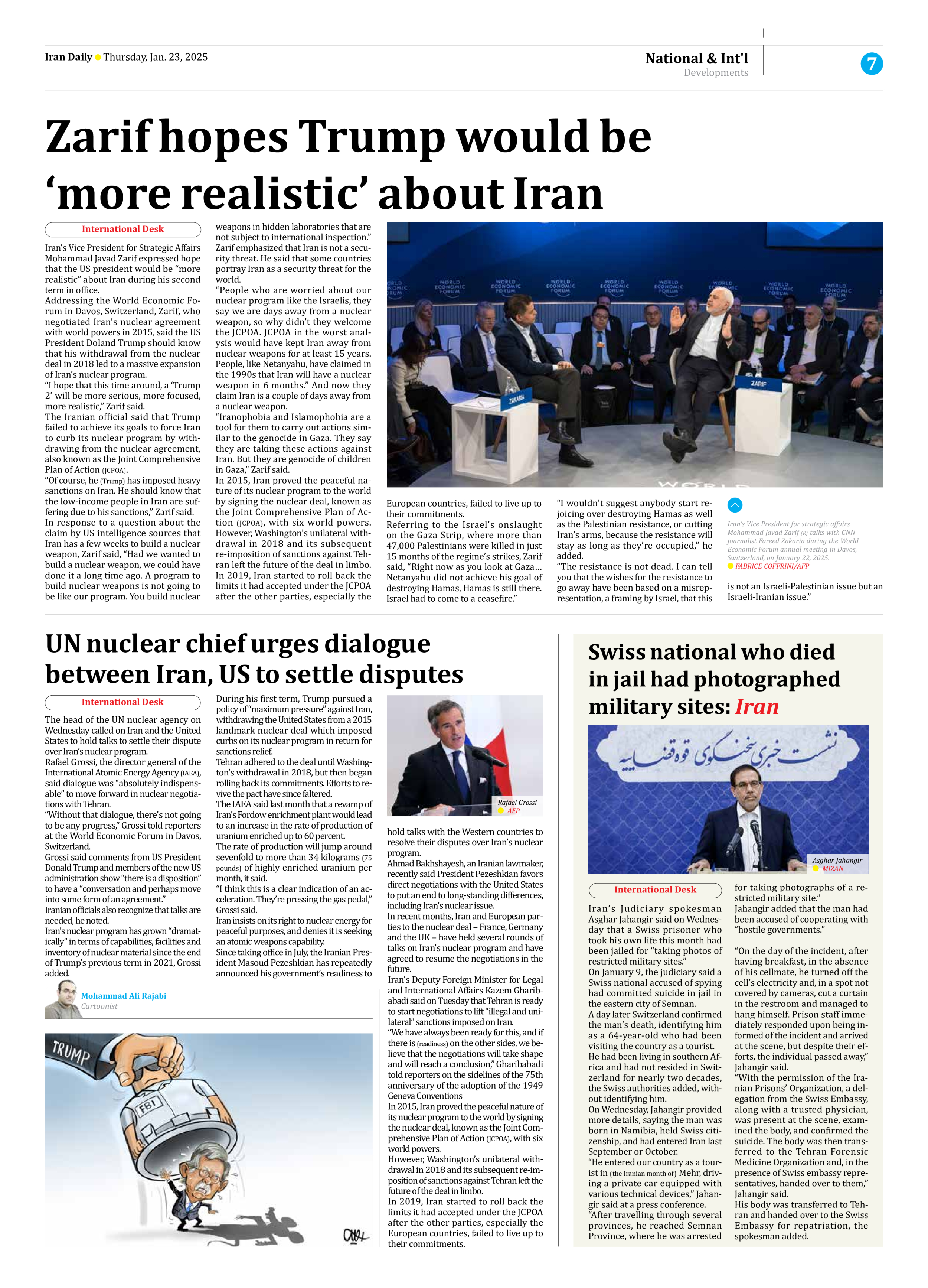
UN nuclear chief urges dialogue between Iran, US to settle disputes
The head of the UN nuclear agency on Wednesday called on Iran and the United States to hold talks to settle their dispute over Iran’s nuclear program.
Rafael Grossi, the director general of the International Atomic Energy Agency (IAEA), said dialogue was “absolutely indispensable” to move forward in nuclear negotiations with Tehran.
“Without that dialogue, there’s not going to be any progress,” Grossi told reporters at the World Economic Forum in Davos, Switzerland.
Grossi said comments from US President Donald Trump and members of the new US administration show “there is a disposition” to have a “conversation and perhaps move into some form of an agreement.”
Iranian officials also recognize that talks are needed, he noted.
Iran’s nuclear program has grown “dramatically” in terms of capabilities, facilities and inventory of nuclear material since the end of Trump’s previous term in 2021, Grossi added.
During his first term, Trump pursued a policy of “maximum pressure” against Iran, withdrawing the United States from a 2015 landmark nuclear deal which imposed curbs on its nuclear program in return for sanctions relief.
Tehran adhered to the deal until Washington’s withdrawal in 2018, but then began rolling back its commitments. Efforts to revive the pact have since faltered.
The IAEA said last month that a revamp of Iran’s Fordow enrichment plant would lead to an increase in the rate of production of uranium enriched up to 60 percent.
The rate of production will jump around sevenfold to more than 34 kilograms (75 pounds) of highly enriched uranium per month, it said.
“I think this is a clear indication of an acceleration. They’re pressing the gas pedal,” Grossi said.
Iran insists on its right to nuclear energy for peaceful purposes, and denies it is seeking an atomic weapons capability.
Since taking office in July, the Iranian President Masoud Pezeshkian has repeatedly announced his government’s readiness to hold talks with the Western countries to resolve their disputes over Iran’s nuclear program.
Ahmad Bakhshayesh, an Iranian lawmaker, recently said President Pezeshkian favors direct negotiations with the United States to put an end to long-standing differences, including Iran’s nuclear issue.
In recent months, Iran and European parties to the nuclear deal – France, Germany and the UK – have held several rounds of talks on Iran’s nuclear program and have agreed to resume the negotiations in the future.
Iran’s Deputy Foreign Minister for Legal and International Affairs Kazem Gharibabadi said on Tuesday that Tehran is ready to start negotiations to lift “illegal and unilateral” sanctions imposed on Iran.
“We have always been ready for this, and if there is (readiness) on the other sides, we believe that the negotiations will take shape and will reach a conclusion,” Gharibabadi told reporters on the sidelines of the 75th anniversary of the adoption of the 1949 Geneva Conventions
In 2015, Iran proved the peaceful nature of its nuclear program to the world by signing the nuclear deal, known as the Joint Comprehensive Plan of Action (JCPOA), with six world powers.
However, Washington’s unilateral withdrawal in 2018 and its subsequent re-imposition of sanctions against Tehran left the future of the deal in limbo.
In 2019, Iran started to roll back the limits it had accepted under the JCPOA after the other parties, especially the European countries, failed to live up to their commitments.







